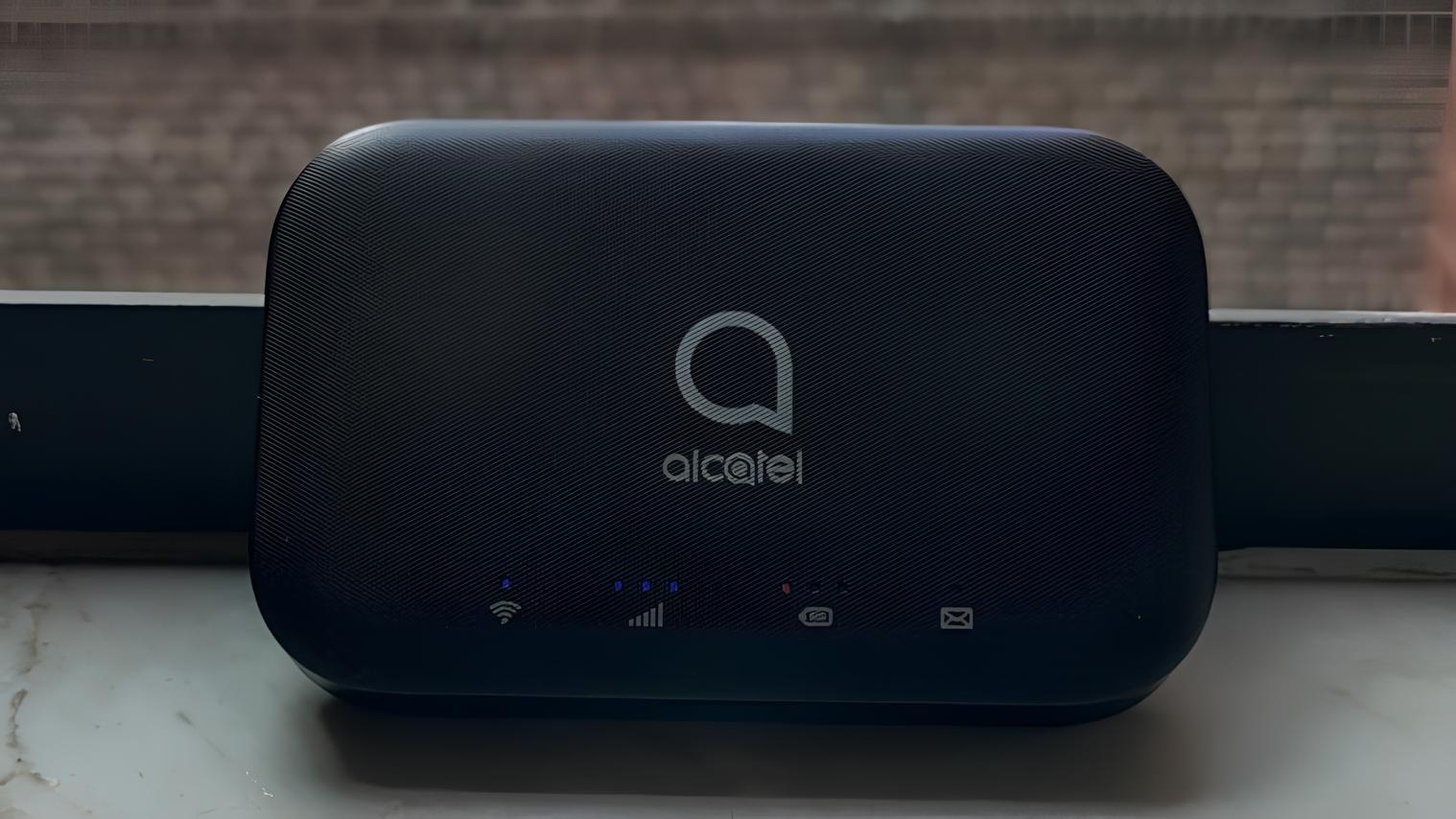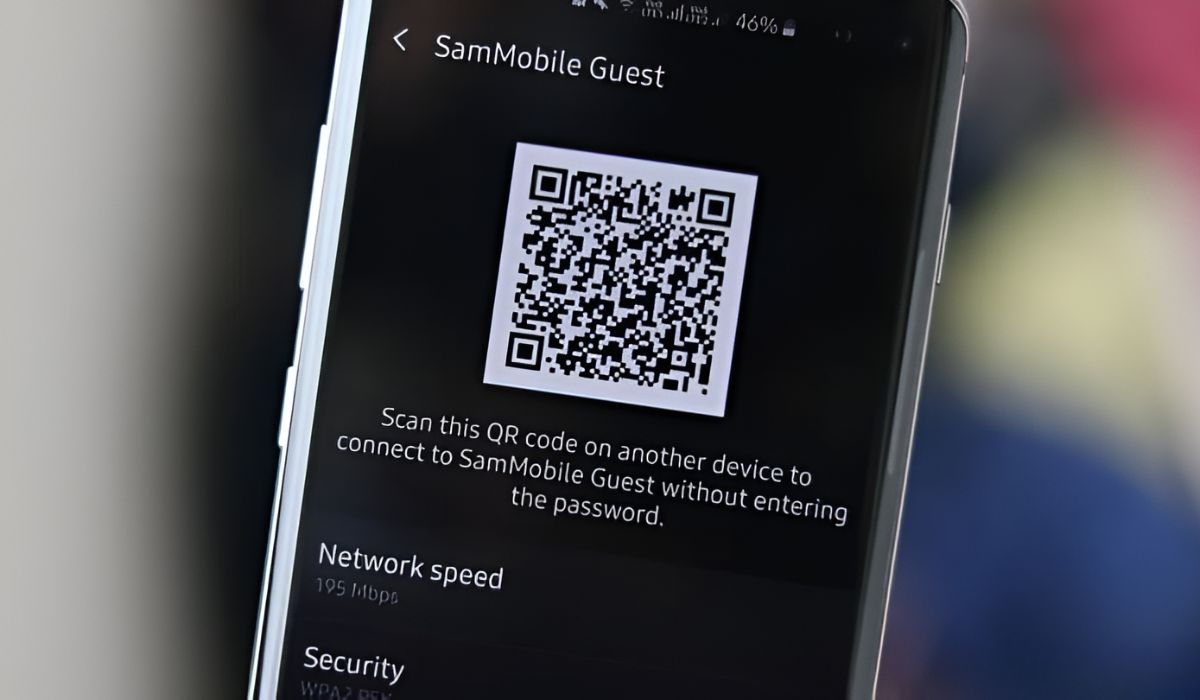Introduction
In today's fast-paced digital age, staying connected on the go is more crucial than ever. Whether you're a remote worker, a student, or simply someone who enjoys seamless internet access, reliable hotspot services are a necessity. Fortunately, there are various avenues through which you can access these services, each with its own set of benefits and considerations.
From bustling public places to the offerings of mobile carriers and internet service providers, the options are diverse and abundant. Moreover, hotspot aggregators have emerged as a convenient solution for individuals seeking widespread connectivity. In this comprehensive guide, we will explore the different avenues for obtaining reliable hotspot services, empowering you to make an informed decision that aligns with your connectivity needs.
Stay tuned as we delve into the diverse landscape of hotspot services, uncovering the key features and advantages associated with each option. Whether you're seeking connectivity for work, leisure, or study, this guide will equip you with the knowledge to navigate the realm of hotspot services with confidence and ease.
Public Places
Public places have become synonymous with the availability of hotspot services, catering to the needs of individuals seeking internet access outside the confines of their homes or offices. From bustling coffee shops and libraries to airports and hotels, these locations offer convenient connectivity options for patrons and visitors. Here's a closer look at the benefits and considerations associated with accessing hotspot services in public places:
Benefits of Public Hotspots
-
Convenience: Public places such as coffee shops, restaurants, and shopping centers provide a convenient environment for individuals to access hotspot services while going about their daily activities. Whether you're grabbing a cup of coffee, waiting for a flight, or studying at a local library, these venues offer a seamless blend of connectivity and comfort.
-
Social Connectivity: Beyond the practicality of internet access, public hotspots foster social connectivity. Patrons can engage in virtual interactions, collaborate on projects, or simply stay connected with friends and family while enjoying the ambiance of a public setting.
-
Diverse Environments: Public places offer a diverse range of environments, allowing individuals to choose settings that align with their preferences. Whether you prefer a lively atmosphere in a bustling cafe or a tranquil setting in a library, public hotspots cater to various preferences and work styles.
Considerations for Public Hotspots
-
Security Concerns: While public hotspots offer convenience, it's essential to remain cautious about potential security risks. Public networks may pose security vulnerabilities, making it crucial to use virtual private network (VPN) services or exercise caution when accessing sensitive information in these environments.
-
Bandwidth Limitations: In busy public places, the available bandwidth may fluctuate based on the number of users accessing the hotspot. This can impact the speed and reliability of the internet connection, especially during peak hours.
-
Time Restrictions: Some public hotspots may impose time restrictions on internet usage, particularly in venues where high turnover is common. It's important to be mindful of these limitations, especially when planning to engage in extended online activities.
Navigating the realm of public hotspots involves balancing the advantages of convenience and social connectivity with the considerations of security, bandwidth limitations, and time restrictions. By understanding the dynamics of accessing hotspot services in public places, individuals can make informed decisions that align with their connectivity needs while embracing the diverse settings that these venues offer.
Mobile Carriers
Mobile carriers play a pivotal role in providing reliable hotspot services to consumers, leveraging their extensive network infrastructure to offer seamless connectivity on the go. Whether you're a frequent traveler, a remote worker, or someone who values the flexibility of mobile internet access, exploring the offerings of mobile carriers can unlock a wealth of benefits. Here's an in-depth exploration of the advantages and considerations associated with obtaining hotspot services from mobile carriers:
Advantages of Mobile Carrier Hotspots
-
Network Coverage: Mobile carriers boast expansive network coverage, ensuring that hotspot services are accessible in diverse geographic locations. Whether you're in urban centers, rural areas, or on the move, the robust network infrastructure of mobile carriers facilitates consistent connectivity, empowering users to stay online wherever they go.
-
Integrated Services: Many mobile carriers offer integrated hotspot services as part of their broader mobile data plans. This integration streamlines the process of accessing hotspots, allowing users to leverage their existing mobile subscriptions to connect to designated hotspot locations without the need for separate accounts or credentials.
-
Reliability and Speed: With a focus on network optimization and performance, mobile carrier hotspots often deliver reliable and high-speed internet connectivity. This reliability is particularly valuable for individuals who depend on seamless access for work, communication, or entertainment, ensuring a consistent online experience across various devices.
-
Customized Plans: Mobile carriers frequently offer customizable data plans that cater to diverse usage patterns and preferences. Whether you require occasional hotspot access or rely on it as a primary means of connectivity, mobile carriers provide flexibility in choosing plans that align with your data consumption needs and budget.
Considerations for Mobile Carrier Hotspots
-
Data Limits: While mobile carriers offer the convenience of hotspot services, it's important to be mindful of data limits associated with specific plans. Exceeding data caps can result in additional charges or reduced speeds, prompting users to monitor their usage and consider plans that accommodate their data requirements.
-
Device Compatibility: Some mobile carrier hotspots may require specific devices or settings for seamless connectivity. It's essential to ensure that your devices are compatible with the carrier's hotspot infrastructure, avoiding potential compatibility issues that could hinder the user experience.
-
Subscription Requirements: Accessing hotspot services from mobile carriers may necessitate an active subscription to a compatible data plan. Understanding the subscription requirements and associated costs is crucial for individuals seeking to leverage mobile carrier hotspots effectively.
Navigating the realm of mobile carrier hotspots involves harnessing the extensive network coverage, integrated services, reliability, and speed offered by mobile carriers while considering factors such as data limits, device compatibility, and subscription requirements. By evaluating these aspects, individuals can make informed decisions when selecting mobile carrier hotspot services, unlocking the benefits of seamless connectivity tailored to their specific needs and preferences.
Internet Service Providers
Internet Service Providers (ISPs) play a pivotal role in delivering reliable hotspot services to individuals and businesses, offering a diverse range of connectivity options tailored to varying needs and usage patterns. Whether you prioritize high-speed internet for remote work, online entertainment, or seamless communication, exploring the offerings of ISPs can unlock a wealth of benefits. Here's an in-depth exploration of the advantages and considerations associated with obtaining hotspot services from Internet Service Providers:
Advantages of ISP Hotspots
-
Comprehensive Coverage: ISPs leverage their infrastructure to provide widespread hotspot coverage, ensuring that users have access to reliable internet connectivity in diverse locations. Whether you're at home, in a commercial establishment, or on the move, ISPs offer a seamless network of hotspots that cater to your connectivity needs.
-
High-Speed Connectivity: Many ISPs prioritize network optimization and performance, delivering high-speed internet access through their hotspot services. This emphasis on speed is particularly valuable for individuals who rely on consistent and fast connectivity for work, multimedia streaming, and other online activities.
-
Unified Billing and Support: Subscribing to ISP hotspot services often integrates seamlessly with existing internet plans, streamlining the billing process and providing unified customer support. This unified approach simplifies account management and technical assistance, offering users a cohesive experience across their internet services.
-
Customized Packages: ISPs frequently offer customizable hotspot packages that align with diverse usage patterns and preferences. Whether you require occasional hotspot access or depend on it as a primary means of connectivity, ISPs provide flexibility in choosing plans that cater to your data consumption needs and budget.
Considerations for ISP Hotspots
-
Equipment Compatibility: Some ISP hotspots may require specific equipment or configurations for seamless connectivity. It's essential to ensure that your devices and networking setup align with the requirements of the ISP's hotspot infrastructure, avoiding potential compatibility issues that could impact your connectivity experience.
-
Security Protocols: While ISP hotspots prioritize connectivity, it's crucial to address security considerations. Users should implement best practices for securing their internet connections, such as using strong passwords and encryption protocols, to safeguard their data and privacy when accessing ISP hotspots.
-
Service Limitations: Understanding any limitations or fair usage policies associated with ISP hotspot services is essential for informed usage. Some ISPs may impose data caps or speed throttling after reaching certain thresholds, necessitating awareness of these limitations to manage your connectivity effectively.
Navigating the realm of ISP hotspots involves harnessing comprehensive coverage, high-speed connectivity, unified billing and support, and customized packages while considering factors such as equipment compatibility, security protocols, and service limitations. By evaluating these aspects, individuals can make informed decisions when selecting ISP hotspot services, unlocking the benefits of reliable and tailored connectivity that aligns with their specific needs and preferences.
Hotspot Aggregators
Hotspot aggregators have emerged as a convenient and versatile solution for individuals seeking widespread connectivity across diverse locations. By consolidating access to multiple hotspot networks under a unified platform, these aggregators offer users the flexibility to connect seamlessly while navigating various settings, from urban hubs to remote locales. Let's delve into the intricacies of hotspot aggregators and explore the compelling advantages they bring to the realm of connectivity.
Advantages of Hotspot Aggregators
-
Network Diversity: Hotspot aggregators collaborate with a multitude of network providers, enabling users to access a diverse array of hotspots without the constraints of single-network limitations. This network diversity empowers individuals to stay connected across different regions, leveraging the collective coverage of multiple providers for enhanced accessibility.
-
Unified Access: Through a centralized platform or application, hotspot aggregators streamline the process of accessing and managing hotspot connections. Users can seamlessly discover, connect to, and monitor available hotspots, eliminating the complexities associated with navigating disparate network interfaces or authentication procedures.
-
Global Roaming: Many hotspot aggregators offer global roaming capabilities, allowing users to extend their connectivity beyond local boundaries. This feature is particularly valuable for frequent travelers and international professionals, providing consistent access to hotspots in various countries without the need for separate subscriptions or cumbersome roaming arrangements.
-
Enhanced Security: Hotspot aggregators prioritize security measures, often implementing encryption protocols and authentication standards to safeguard user data and privacy. By centralizing security practices across multiple networks, aggregators offer users a cohesive and secure connectivity experience, mitigating potential risks associated with public hotspot usage.
-
Cost-Efficiency: For individuals seeking cost-effective connectivity solutions, hotspot aggregators present a compelling value proposition. By consolidating access to multiple networks under unified plans or subscriptions, users can optimize their connectivity expenses while enjoying the benefits of widespread hotspot coverage.
Considerations for Hotspot Aggregators
-
Subscription Models: Understanding the subscription models and pricing structures of hotspot aggregators is essential for informed decision-making. Users should evaluate the available plans, features, and associated costs to align their connectivity needs with the offerings of the aggregator.
-
Quality of Service: While hotspot aggregators offer extensive coverage, users should assess the quality of service across different networks integrated into the aggregator's platform. Factors such as network reliability, speed consistency, and user satisfaction metrics contribute to the overall connectivity experience.
-
Device Compatibility: Ensuring that devices are compatible with the aggregator's platform is crucial for seamless connectivity. Users should verify device requirements and supported configurations to avoid compatibility issues that could hinder their hotspot usage.
-
Support and Assistance: Access to responsive customer support and technical assistance is pivotal for a positive user experience. Evaluating the support framework provided by hotspot aggregators can help users address connectivity issues and inquiries effectively.
In navigating the realm of hotspot aggregators, individuals can leverage the benefits of network diversity, unified access, global roaming, enhanced security, and cost-efficiency while considering factors such as subscription models, quality of service, device compatibility, and support frameworks. By embracing the versatility and convenience offered by hotspot aggregators, users can embark on seamless connectivity experiences across diverse locations, empowering them to stay connected with ease and confidence.
Conclusion
In conclusion, the landscape of reliable hotspot services encompasses a diverse array of options, each presenting unique benefits and considerations. From the bustling environments of public places to the offerings of mobile carriers, internet service providers, and hotspot aggregators, individuals have the opportunity to tailor their connectivity experiences to align with their specific needs and preferences.
Public places, such as coffee shops, libraries, and airports, offer the convenience of seamless connectivity amidst diverse settings. While these hotspots foster social connectivity and provide a convenient environment for internet access, users should remain cautious about security risks and be mindful of potential bandwidth limitations and time restrictions.
Mobile carriers stand out for their extensive network coverage, integrated services, reliability, and speed. The seamless integration of hotspot services with existing mobile data plans and the flexibility of customizable packages empower users to stay connected on the go. However, considerations such as data limits, device compatibility, and subscription requirements warrant attention when leveraging mobile carrier hotspots.
Internet Service Providers (ISPs) deliver comprehensive hotspot coverage, high-speed connectivity, and unified billing and support, offering tailored packages that cater to diverse usage patterns. While ISP hotspots present a cohesive connectivity experience, users should consider factors such as equipment compatibility, security protocols, and service limitations to optimize their connectivity.
Hotspot aggregators emerge as a versatile solution, consolidating access to diverse networks under a unified platform. The benefits of network diversity, unified access, global roaming, enhanced security, and cost-efficiency make hotspot aggregators an attractive option. However, users should evaluate subscription models, quality of service, device compatibility, and support frameworks to make informed decisions when embracing the convenience of hotspot aggregators.
By navigating the realm of hotspot services with a comprehensive understanding of the advantages and considerations associated with each option, individuals can make informed decisions that align with their connectivity needs. Whether it's the convenience of public hotspots, the extensive coverage of mobile carriers and ISPs, or the versatility of hotspot aggregators, the realm of reliable hotspot services offers a spectrum of connectivity solutions, empowering users to stay connected with confidence and ease, regardless of their location or connectivity requirements.

























